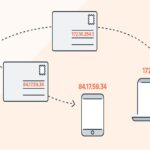
Bitcoin, the world’s most popular cryptocurrency, has gained significant attention and value in recent years. As an investor or holder of Bitcoin, you might be considering selling it online to take advantage of its market value. In this article, we will guide you through the process of selling Bitcoin online, ensuring you choose a reliable platform, set up your account, complete the transaction securely, and navigate important considerations such as taxes. So, let’s dive in and explore how you can Buy Bitcoin .
Introduction
Before delving into the specifics of selling Bitcoin online, it’s essential to understand what Bitcoin is and how it operates. Bitcoin is a decentralized digital currency that operates on a peer-to-peer network, allowing for secure and direct transactions without the need for intermediaries like banks. As a decentralized currency, Bitcoin’s value is determined by market forces and can fluctuate significantly Buy Ethereum.
Understanding Bitcoin
To successfully sell Bitcoin, it’s crucial to have a solid understanding of how it works. Bitcoin transactions are recorded on a public ledger called the blockchain, which ensures transparency and immutability. Bitcoin owners store their digital assets in wallets, which come in various forms, including software wallets, hardware wallets, and online wallets. Each wallet has a unique address used for sending and receiving Bitcoin.
Selling Bitcoin Online
Selling Bitcoin online involves finding a reliable platform that allows you to exchange your Bitcoin for traditional currencies like USD or other cryptocurrencies. There are several reputable cryptocurrency exchanges available, such as Coinbase, Binance, and Kraken. These platforms provide a user-friendly interface and robust security measures to facilitate safe and efficient transactions.
Choosing a Reliable Platform
When selecting a platform to sell your Bitcoin, consider factors such as reputation, security features, fees, and supported payment methods. Look for platforms that have been operating for a considerable time and have positive user reviews. It’s crucial to choose a platform that prioritizes security, with features like two-factor authentication and cold storage for funds.
Setting Up Your Account
Once you’ve chosen a platform, the next step is to create an account. Visit the platform’s website and click on the “Sign Up” or “Create Account” button. Provide the required information, including your email address, a secure password, and any additional verification steps. It’s essential to use a strong, unique password and enable two-factor authentication to enhance the security of your account.
Verifying Your Identity
To comply with regulations and prevent fraudulent activities, most reputable cryptocurrency exchanges require users to verify their identity. This process usually involves submitting identification documents, such as a passport or driver’s license, and sometimes proof of address. Follow the platform’s instructions for identity verification, which may include uploading scanned or photographed copies of the required documents.
Creating a Sell Order
Once your account is set up and verified, you can proceed with creating a sell order. A sell order specifies the amount of Bitcoin you want to sell and at what price. Enter the relevant details, including the quantity of Bitcoin and the desired price per unit. You can choose to sell your Bitcoin at the market price or set a specific price if you believe the market will move in your favor.
Setting the Price
Determining the selling price of your Bitcoin requires careful consideration. It’s essential to research the current market price and analyze trends to make an informed decision. Factors such as supply and demand, news events, and market sentiment can influence Bitcoin’s price. Setting a competitive price can attract potential buyers and increase the chances of a successful transaction.
Selecting the Payment Method
When selling Bitcoin online, you need to select a payment method that suits your preferences and is supported by the platform. Common payment methods include bank transfers, PayPal, credit or debit cards, and even other cryptocurrencies. Each payment method has its advantages and considerations, such as transaction fees, processing time, and availability in your region.
Completing the Transaction
After selecting the payment method, review your sell order details and proceed to complete the transaction. Ensure that all the information is accurate before confirming the sale. Depending on the platform and payment method, the transaction may take a few minutes to several hours to process. Once the transaction is complete, you will receive the agreed-upon funds in your chosen payment method.
Security Considerations
While selling Bitcoin online, it’s crucial to prioritize security to protect your funds and personal information. Be cautious of phishing attempts and only use official platforms. Avoid sharing sensitive information with anyone and enable additional security features like two-factor authentication. Regularly monitor your accounts for any suspicious activities and keep your devices and software up to date.
Avoiding Scams
Unfortunately, the cryptocurrency industry is not immune to scams. Stay vigilant and be aware of common scam tactics such as fake exchanges, Ponzi schemes, and phishing emails. Research and verify the legitimacy of platforms before using them, and be cautious of any offers that seem too good to be true. If something feels suspicious or unsafe, trust your instincts and seek guidance from reliable sources.
Keeping Your Funds Secure
Even after completing a successful sale, it’s essential to maintain the security of your funds. Consider transferring the funds from the platform to a secure wallet under your control. Hardware wallets, such as Trezor or Ledger, offer enhanced security by keeping your private keys offline. Regularly update your wallet software and backup your private keys or seed phrase in a safe and secure location.
Tax Implications
Selling Bitcoin may have tax implications depending on your jurisdiction. Consult with a tax professional or accountant to understand your obligations and ensure compliance with local tax laws. Keep records of your transactions, including the purchase price, selling price, and dates, as these details may be required for accurate tax reporting.





